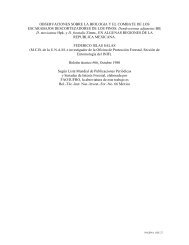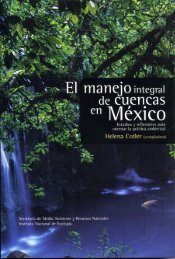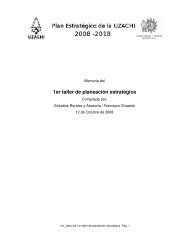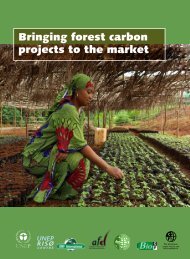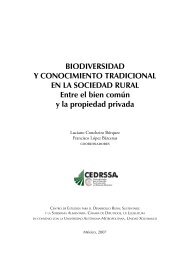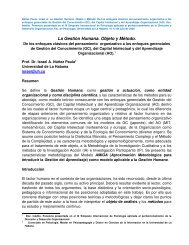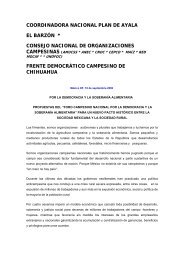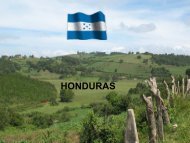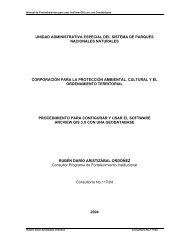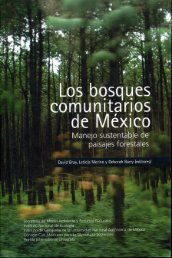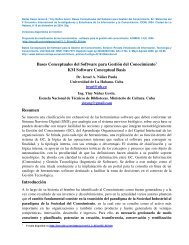STATE OF THE WORLD's INDIGENOUs PEOpLEs - CINU
STATE OF THE WORLD's INDIGENOUs PEOpLEs - CINU
STATE OF THE WORLD's INDIGENOUs PEOpLEs - CINU
- No tags were found...
Create successful ePaper yourself
Turn your PDF publications into a flip-book with our unique Google optimized e-Paper software.
EMBARGOED UNTIL 14 January 2010<strong>STATE</strong> <strong>OF</strong> <strong>THE</strong> WORLD’S INDIGENOUS PEOPLESNot for distributionIndigenous peoples recognize that there is no room for cultural imperialism in the context of human rights.Rather, indigenous peoples are demanding that human rights be interpreted fairly, holistically, and consistent withthe peremptory norms of international law. Ultimately, the balancing of the universality of human rights and theaccommodation of distinct cultural contexts are necessary to ensure and maintain the rich diversity of humankind.Human rights, democracy, and the rule of lawLike the interdependence of human rights, there are important relationships between human rights, democracyand the rule of law. 28 Increasingly, the international community has recognized the importance of this relationship. 29For any government institutions to have a measure of integrity, they must ensure access, participation andrepresentation. In this way, democracy is not merely about one person, one vote. In order to exercise thehuman right to self-determination without any threat to the territorial integrity or political unity of sovereignand independent states, governments must guarantee effective representation of all. 30 Without such effectiveparticipation and accommodation, and without recognizing the rights of distinct peoples within their borders,states cannot possibly claim to respect social justice and democracy. Hence, democracy and the rule of law arenecessarily interrelated.In 1991, the Conference on Security and Co-operation in Europe noted:The participating States emphasize that issues relating to human rights, fundamental freedoms,democracy and the rule of law are of international concern, as respect for these rights andfreedoms constitutes one of the foundations of the international order. They categorically andirrevocably declare that the commitments undertaken in the field of the human dimension of theCSCE are matters of direct and legitimate concern to all participating States and do not belongexclusively to the internal affairs of the State concerned. 31And, in 1992, United Nations Secretary-General B. Boutros-Ghali stated:Democracy within nations requires respect for human rights and fundamental freedoms, as setforth in the [United Nations] Charter... This is not only a political matter. 32More recently, the member States of the OAS adopted the Inter-American Democratic Charter in Lima, Peru,coincidentally on September 11, 2001, and affirmed, both in the preamble and operative paragraphs of the Charter,28 Steiner and Alston (1996), 387, citing Pannikar (1982): “Human rights are tied to democracy. Individuals need to be protectedwhen the structure which is above them (Society, the State or the Dictator – by whatever name) is not qualitatively superior tothem, i.e., when it does not belong to a higher order. Human rights are a legal device for the protection of smaller numbers ofpeople (the minority or the individual) faced with the power of greater numbers.”29 Steiner and Alston (ibid.), 1314, quoting Steiner (1999), 202: “…the rule of law, so vital to the growth of liberalism and democraticgovernment, is invoked to urge greater predictability in the application of laws bearing on foreign investment and on businessgenerally… In turn, it is argued, heightened business investment and activity under such a legal regime will ultimatelystrengthen the rule of law with respect to civil and political rights as well. Foreign investment and the development of the localeconomy in a broad Western model thus will contribute importantly toward, if not make inevitable, the realization of democraticand human rights culture… The causal flows are argued to be reciprocal, as global business activity both inspires and respondsto the growth of democratic rule and its associated rule of law.”30 See Declaration on Principles of International Law Concerning Friendly Relations and Cooperation Among States in Accordancewith the Charter of the United Nations, (1970), General Assembly Resolution 2625 (XXV), 25 UN GAOR, Supp. (No. 28) 121, UN DocA/8028 (1971), reprinted in 9 I.L.M. 1292 (1970).31 OSCE Document of the Moscow Meeting on the Human Dimension, Emphasising Respect for Human Rights, Pluralistic Democracy,the Rule of Law, and Procedures for Fact-Finding, 3 October 1991, in 30 I.L.M. 1670, at 1672.32B. Boutros-Ghali (1992), 22, para. 81.196 | CHAPTER VI




